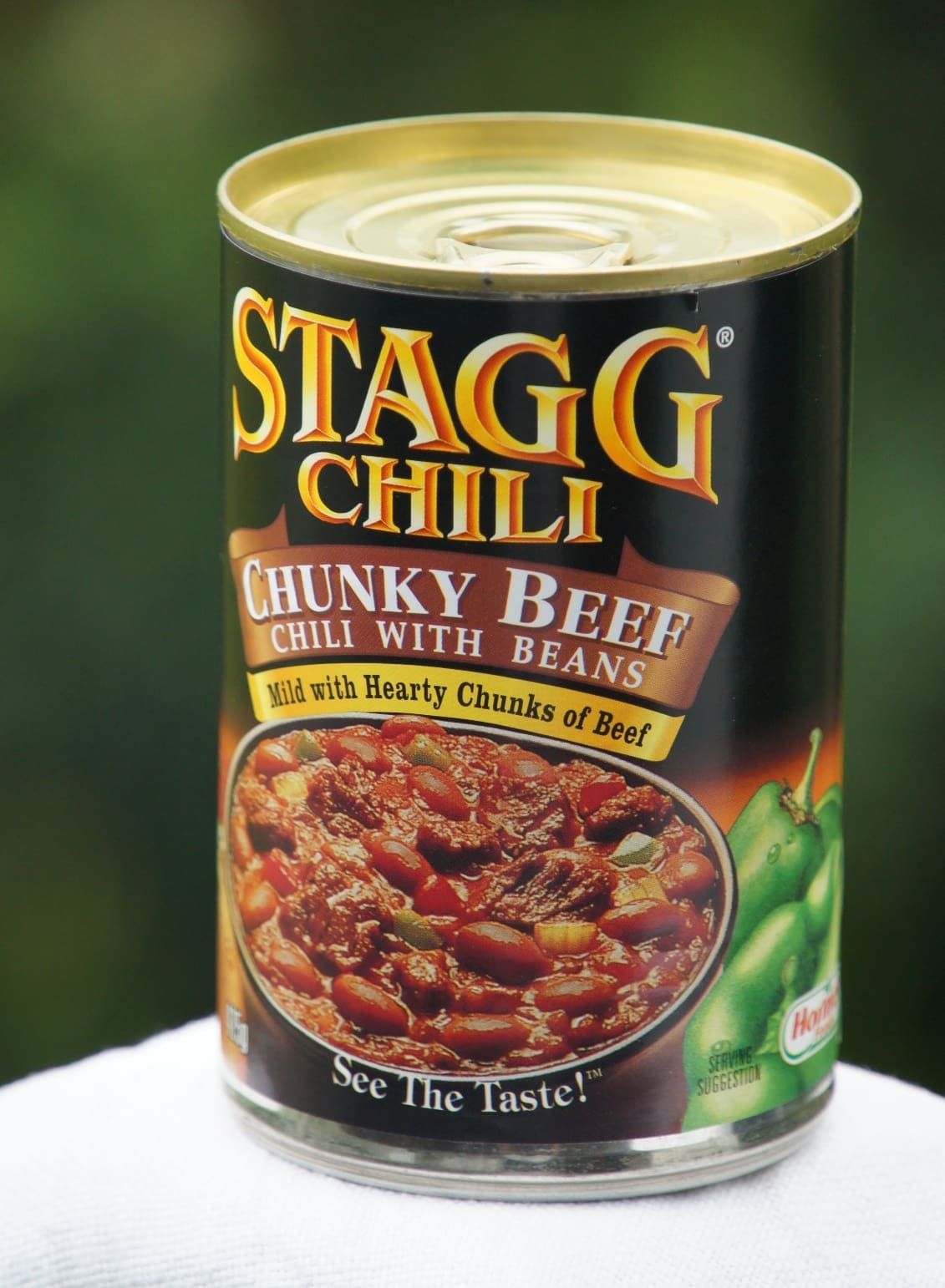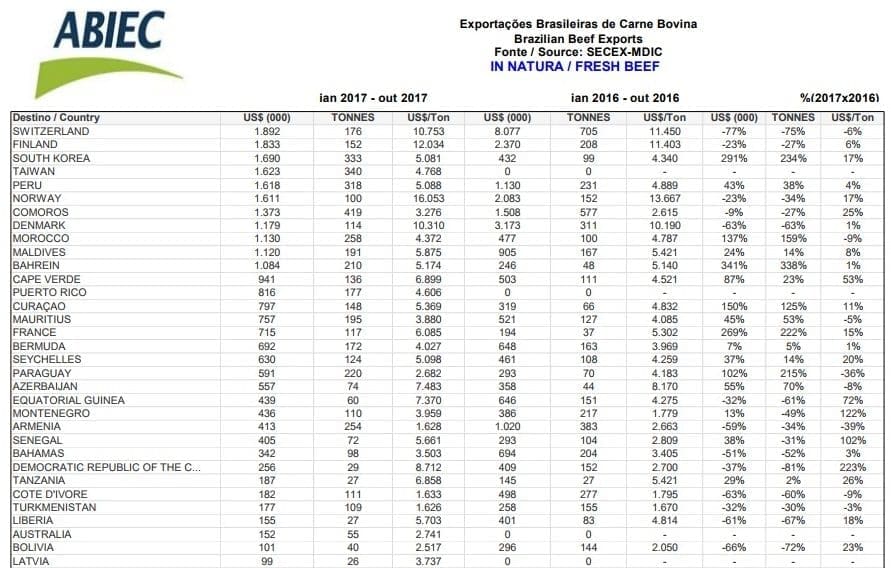HAS fresh beef from Brazil been imported recent into Australia, in direct contravention with Australia’s access rules?
The prospect has been doing the rounds of industry lately, with statistics in an official ABIEC (Brazilian Beef Exporters) export summary causing some concern.
As can be seen in the image below (click on image for a larger view), the ABIEC report clearly suggests that 55 tonnes of fresh beef (understood to mean chilled and frozen, but uncooked) was exported from Brazil to Australia during 2017. It placed a value on that product of US$152,000, or $2740/tonne. No entry was recorded the year before – as Australia would expect – making the 2017 trade all the more suspicious.
Beef from Brazil is not permitted for import to Australia, on Foot & Mouth and BSE disease risk grounds. Currently the only international countries permitted to export beef to Australia are New Zealand, and Vanuatu.
Beef Central took the report to the Australian Department of Agriculture’s import export department, which said it had no record of any such imports from Brazil, but it could not explain how such an entry would appear on Brazilian export statistics. One theory suggested the report perhaps meant ‘Austria’ instead of ‘Australia.’
Beef Central asked a Portuguese-speaking contact in Brazil to look into the mystery for us.
He contacted ABIEC, which suggested an Australian-based meat trading company had made the purchase, but the beef was in fact destined for another, third-party end-market. The body admitted that the data entries contained in its reports consider the buyer of the beef, not necessarily its final destination.
A second entry in the report, covering ‘industrialised/processed’ beef exports looks genuine.
 It suggested a total of 588 tonnes of Brazilian beef, worth about US$3600/t, had been sold into Australia this year. A slightly smaller amount appeared the year before.
It suggested a total of 588 tonnes of Brazilian beef, worth about US$3600/t, had been sold into Australia this year. A slightly smaller amount appeared the year before.
Fully cooked (ie sterilised) ‘processed’ beef products containing Brazilian beef do enter Australia. The most notable is tinned Stagg chili, a university student staple, made by food giant Hormel using cooked beef sourced out of Brazil. Cooked, tinned corned beef is another example which can be found on supermarket shelves.
Case apparently closed.
Brazil on track for 1.5m tonnes annual export
Despite this year’s extensive and prolonged meat scandals plaguing the Brazilian beef industry, Brazil beef exporting group ABIEC reported exports (all descriptions, including offals) of 1.205 million tonnes for the calendar year to the end of October, up about 60,000t on the corresponding period the year before.
Brazil expects total 2017 exports to reach around 1.5 million tonnes, despite the setback caused by industry crises earlier this year including a federal probe into alleged corruption of health inspectors.
Yesterday Brazil’s Agriculture Minister suggested the country would ‘very soon’ resume beef exports to the United States, breaking a ban implemented in June after US officials said quality problems were found in some shipments.
The minister said resumption of beef exports could happen as soon as early next year, but did not elaborate.
Currently Brazil’s main meat customers are Hong Kong, China, Russia and the European Union, which imported about half of all the country’s beef products.

